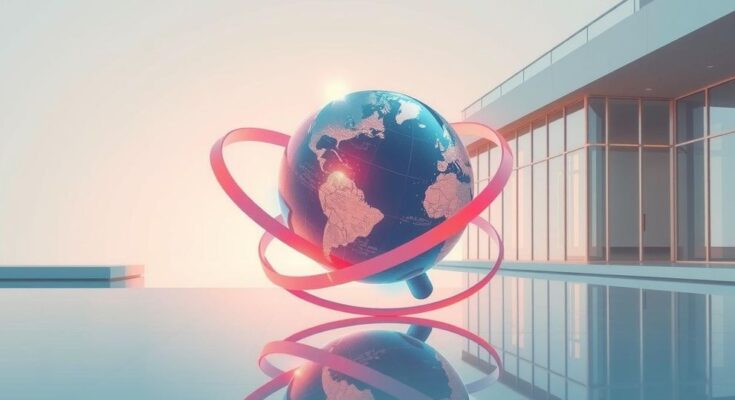The G20 meeting in South Africa, led by President Cyril Ramaphosa, addresses significant geopolitical tensions, particularly regarding the Ukraine conflict. Ramaphosa stresses the importance of multilateralism and international law in resolving crises. The absence of U.S. participation indicates deepening divisions within the group, complicating global diplomatic efforts.
South Africa is hosting a key G20 meeting in Johannesburg, amidst escalating tensions surrounding Russia’s invasion of Ukraine and noticeable absences from major powers. The G20, comprising 19 nations plus the European Union and the African Union, accounts for about 85% of the global GDP, but it is currently fragmented over critical issues like the Ukraine conflict and climate change.
During the opening of the meeting, President Cyril Ramaphosa emphasized the importance of international law and multilateral cooperation for resolving global crises. He expressed concern about the deepening divisions within the group, urging that the principles of the UN Charter be prioritized to unify efforts.
Ramaphosa pointed out the lack of consensus among leading nations, which he warned was undermining fragile global stability. The absence of U.S. Secretary of State Marco Rubio, who criticized the agenda focused on diversity, equity, and inclusion, illustrates the growing political rift affecting G20 discussions.
In summary, the G20 meeting in South Africa highlights significant global tensions, especially regarding the Ukraine crisis. President Ramaphosa’s call for cooperation and adherence to international law reflects an urgent need for unity among world powers. As geopolitical divisions intensify, the G20 must strive toward diplomatic resolutions to maintain global stability.
Original Source: www.aljazeera.com




